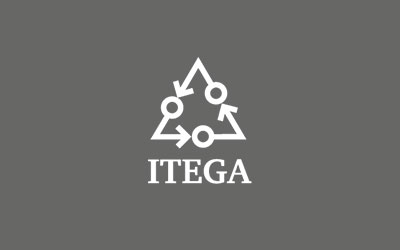Privacytown Q&A
For centuries, local news organizations have been integral to the communities they serve. By providing important news and information to improve the health and well being of local residents, they have established themselves as trusted partners.
Managing the privacy and information preferences of individuals is a related service opportunity. In this Q&A, we explain an opportunity for local news organizations to begin testing a new role helping community members manage their identity and privacy.
Are you a local news organization interested to sign up as a Privacytown sponsor? Follow THIS LINK.
- SIGNUP PAGE
- PDF PRESENTATION: THE PRIVACY LANDSCAPE
- PDF PRESENTATION: THE PUBLISHER OPPORTUNITY i SIGNUP
Q: What do you mean by “Privacy Town”?
A: We mean an effort by news organizations to make digital privacy an important civic issue. We want to help local media outlets and their community partners become high-trust advocates for individual consumer privacy and identity protection.
Privacy Town is an experiment to help news organizations become privacy advocates for their communities, and in so doing begin to reach new readers, viewers and users with trustworthy services — and offers. Privacy Town is a service journalism and customer-support project where news providers cooperate with local public-interest organizations.
Local news organizations have long-held, trusted relationships with the citizens and communities they serve. For centuries, news outlets have consistently created credible content, protected consumer privacy and maintained high-standards for advertising quality. However, with the rise in popularity of online platforms as a source of information, the use of consumer data has not been transparent, privacy has been compromised and ad quality has declined. In addition, online platforms have disintermediated the ability for news outlets to maintain direct relationships with their audiences or generate the advertising revenue needed to support local journalism. The Privacytown initiative is an opportunity for local media to establish a new, higher standard for online consumer privacy, restore its direct relationship with local citizens and increase the quality and effectiveness of advertising for local businesses and brands. Local media is well-positioned to champion public independence, citizen privacy and democratic ideals.
The initiative involves three pieces:
- Positions your organization as a trusted local media outlet and privacy champion that values the people and businesses in your community
- Builds awareness of the value of your audience (real humans instead of bots) to local advertisers
- Provides an opportunity for you to lead public education about how the loss of personal privacy impacts democracy and the communities we live in
Q: For local news organizations, why is this change needed now and what’s the opportunity and purpose?
A: Many newspapers and other local news organizations are struggling to maintain and grow direct relationships with their digital audiences. They may be reaching long-time audiences via traditional media channels, but that group is a gradually diminishing part of most local communities.
At the same time, technology platforms and advertising-technology providers are reaching the missing audiences of news organizations — sometimes using methods that don’t comply with evolving expectations of user privacy.
Major social networks and digital platforms are part of an extensive network of advertising technology facilitating what Harvard Business School emerita Prof. Shoshana Zuboff has dubbed, “Surveillance Capitalism.” News organizations have an opportunity to break from those networks and take on a role as champions of public independence, agency, and control over citizen privacy and identity.
As a byproduct of becoming “information fiduciaries” or Information Valets, news organizations can develop trusted first-party relationships with the public — readers, viewers, listeners, and users. Leaders at Mozilla, the Local Media Consortium and elsewhere believe this deeper relationship, apart from “the platforms” creates opportunity for news organizations to offer revenue generating personalized services to the public.
Q: Who’s involved in this effort?
A: Privacytown is an initiative created by a leading news-industry consortium, a non-profit privacy initiative, and a privacy-forward tech company:
- The Local Media Consortium — An association of 80 local media companies representing more than 2,500 newspaper, broadcast and online only news outlets. The LMC is committed to developing best-in-class privacy standards for its members that protect consumer data while increasing ad quality and effectiveness for advertisers.
- The Information Trust Exchange Governing Association (ITEGA.org) — A nonprofit organization dedicated to develop and implement governing protocols, business rules and technology tools to enable and balance trust, privacy, identity and information commerce.
- Mozilla — The maker of the Firefox web browser, owned by the Mozilla Foundation, a nonprofit organization. Mozilla is pioneering web technology making it easy for the public to control when personal information is shared and for what purposes.
Q: How will it work?
A: A dedicated, on-site Privacytown resource will be available during the entire program to ensure its success for you and your community. Your Privacytown resource will help you with:
- Onboarding
- Setup and implementation
- Internal, consumer and advertiser communication
- Tracking, reporting and documenting findings
Q: News publishers have always had a trusted relationship with their subscribers, audiences and communities. The idea of an initiative to clearly differentiate news publishers from sites without user trust and advertising fraud is appealing. What do we have to do to participate?
A: The first steps should precede any public announcement and are designed to better understand the scope of the problem in your marketplace:
- Install an analytics script on your website to determine how many visitors have installed “ad blockers” or “tracking protection” and are no longer reachable by ad networks that use 3rd party data.
- Sell ads to local businesses that are “whitelisted” by ad-blockers so your website is the best possible means for local advertisers to reach local audiences.
- Experiment running a low cpm ad campaign from programmatic networks claiming to reach your local audience. Measure the results to verify or refute claims that these programmatic networks are actually reaching in-market consumers.
- Encourage your users to get privacy protected, since it improves your competitive ability to sell advertising locally.
- There’s no need to remove any third-party tracking mechanisms from your website or other online applications.
Q: OK, so I have the analytics and competitive research underway. What’s next?
A: The next step is to review the “Privacy Town” educational materials and use it to approach libraries, schools, churches, adult-education and senior centers, and relevant businesses with information about the “Privacy Town” launch, offering briefings on the problem and why a collaboration with a local news organization can help.
Q: Then what?
A: With a base of community knowledge established by your community outreach, and your web services ready, it will be time to announce Privacy Town through your own and other media channels. News organization members of ITEGA can use the educational materials, website links, phone and webinar support provided by ITEGA.
Q: As a publisher, what is in this for me and for our readers, viewers and listeners?
A: Privacy Town aims to protect sustainable advertising revenue, by making the local news organization the best source for local online audience data — and the best place to reach audiences that are local and human.
Without any mutually agreed upon rules or significant legislation, a system of advertising technology has grown up on the last decade which depends upon surveillance of user activities and behaviors without permission to create monetary gain for its owners. For the most part, this activity goes on below the radar of most people. Now, regulators in Europe and California are requiring companies that user personal data get consent to do so. Publishers seeking to reclaim ad revenue must establish control over their audience data. Without protection, third-party tracking enables fraudulent and low-quality sites to claim to offer ads that reach the same audience as a site trusted by users.
User data protection blocks the third-party tracking thus preventing fraudulent and low-quality sites from claiming its ads reach valuable local audience at lower rates than local news organization charge. Publishers can benefit from trusted user data acquired through subscription and micropayment systems, email newsletters, events, and other e-commerce. User data protection helps protect publisher audiences from having personal data collected and sold without permission — creating market power for the trusted publisher.
Q: Are you are trying to craft an argument for advertisers with Privacy Town?
The argument is already there. The project is about collecting the data to help advertisers do what they already know is right. Any publisher with an ad-supported model has to be able to make a strong case for why its ads are better than some cheap generic ad, or actively brand-unsafe ad, that a brand can get anywhere placed on any sort of crazy website. If you are running a local news site you have to be able to say “Our CPMs are higher than you can get elsewhere and here’s why.” Privacytown offers tools to engage existing and new users around management of their digital privacy and identity — creating a trustworthy environment for advertising messages.
Q: Right now our web pages run advertisements from third-party networks at low prices and that brings in a nice chunk of money every month. Does Privacy Town mean stopping that practice?
It’s not a requirement, but it’s important to know that most of those networks require placing special “cookies” or “beacons” on your websites, and those files are how surveillance of your customers without permission takes place. While the revenue is helpful in the short term, in the long term the ad-tech system you’re enabling allows your users to be tracked and served advertising on other, mostly low-quality, sites. That makes it harder in the long run for you to sustain high CPMs for selling ads to your users directly. Still, no one is suggesting you take those beacons and trackers off your pages now. By beginning to collect on the extent to which your users are protected from those trackers, you can build arguments to compete against other sites which are claiming to be selling access to your market.
Q: Is there anything else we should be doing as a news organization?
A: Nothing else is required for you to join the Privacy Town initiative!
You might want to review your own digital services, web and mobile, to make sure you are a good actor in terms of end-user privacy protection. If you have so-called third-party cookies on your sites make sure those services have permission to use any personal identifying information collected via your website. Consider removing them if your business or contracts permit it.
Lastly, ask yourself these questions:
- Do you have in place a method to “signup” new users who would like to entrust you with their email address in exchange for enhanced access to your services?
- Are you willing to offer them a promise that no data about them will be shared with third parties without their explicit permission?
Apply for Privacytown today!
RELATED LINKS:
- Mozilla’s Denelle Dixon: “PUtting Users and Publishers at the Center of the Online Value Exchange” (blog, Feb. 4, 2019)
- How ITEGA may be able to reconcile privacy and identity with the needs of advertisers – a shared-database of non-personal interest information
- An opportunity for local news sites — testing how many of your best readers you’re giving away to ad networks
- Don Marti’s Q-and-A with Greg Swanson about Privacy Town
- Jo Ellen’s conversation with Don Marti about publishers and privacy generally
- Augustine Fou’s description of the ad-blocking services he deploys on his own machines
- Fix for advertising? The Audience Profile Book and ITEGA
- How ITEGA solves solves data leakage and fosters ethical advertising for publishers and users
- How publishers can turn browser protection growth into an opportunity to secure audience and benefit advertisers

